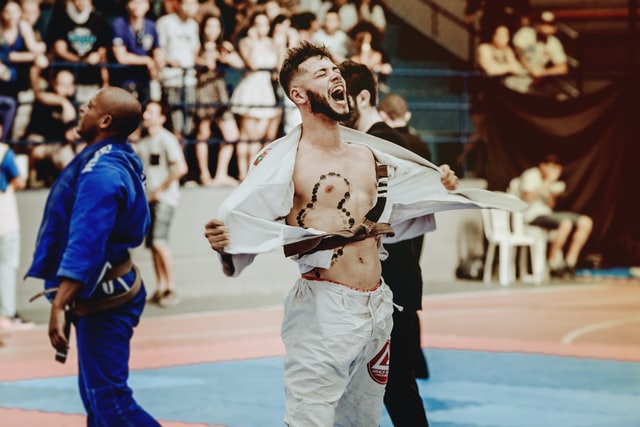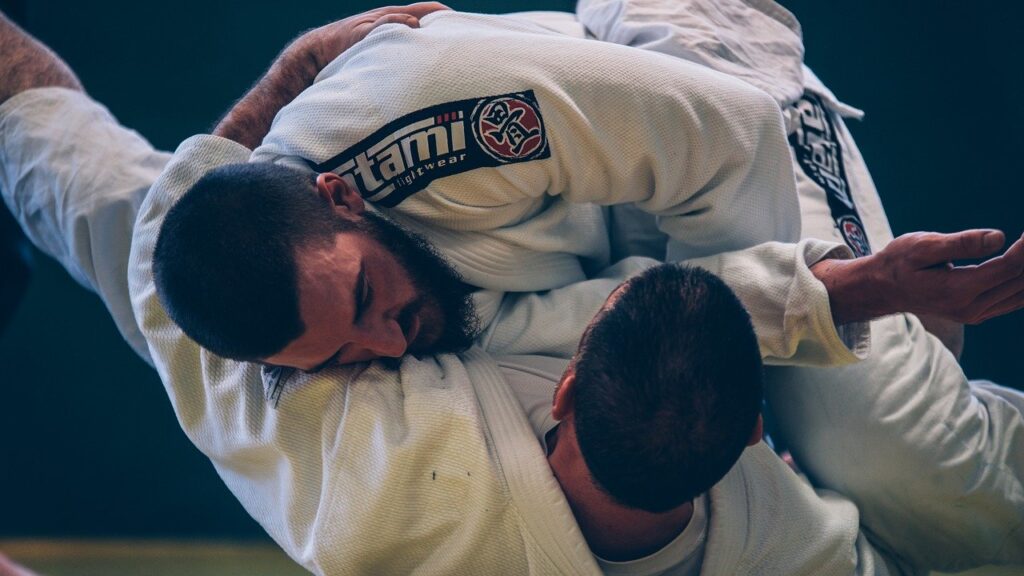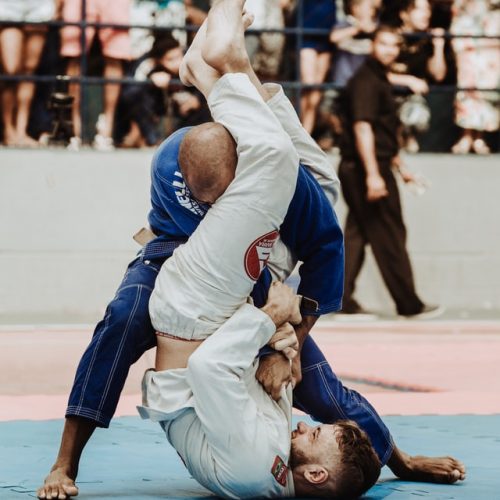First BJJ Tournament: Things you need to know before your first competition
Are you planning to join your first BJJ tournament, but don’t know what to expect? Don’t let uncertainty keep you from a successful and fun-packed (important!) BJJ tournament.
In the next sections, we will discuss the top things you need to for your first BJJ tournament.
So, let’s talk about it.
How long are Jiu-Jitsu matches?
In a Jiu-Jitsu match, the players can win by submitting their opponents in a limited time, or by winning by points.
The time limit of a Jiu-Jitsu match depends on the belt level of the players, a typical match between white belts is 5 minutes long, and it can be up to 8 minutes long for more experienced belts. For black belts, the match is 10 minutes long.
Now, these are the rules used in IBJJF compliant tournaments, however, submission-only tournaments are also becoming common, which have time limits of up to 20 minutes for a single match.
Here is a complete breakdown of round lengths for different belts
- White Belt: 5 minutes
- Blue Belt: 6 minutes
- Purple Belt: 7 minutes
- Brown Belt: 8 minutes
- Black Belt: 10 minutes
In other tournaments, Like the ADCC, the round lengths can be different. The qualifying rounds are 10 minutes long, whereas the finals are 20 minutes long. If there is a draw, overtime for qualifying matches in 5 minutes, and 10 minute overtime rounds are done for finals. There is only one overtime round in qualifying rounds, and two overtime rounds in the finals.

How Do You Get Points in Jiu-Jitsu?
The Scoring system in Jiu-Jitsu Matches can be confusing sometimes, so let me break it down for you. In Jiu-Jitsu, there is a common saying, which goes like “Position before Submission”. Therefore, in Jiu-Jitsu, you can get points for advancing positions.
Here is a breakdown of the scoring system
- Taking an opponent to the ground: 2 points (not applicable if your opponent pulls guard)
- Sweeps: 2 points
- Passing your opponent’s guard, or getting to side control : 3 points
- Full mount, or back mount with both hooks in 4 points

How many rounds are there in a BJJ tournament?
The number of rounds you may have to fight for in a Jiu-Jitsu match depends on how well you perform. If you keep winning you’ll have to play more matches. Typically, you may have to play 3-5 matches in one tournament, depending on the size of the bracket.
If you also compete in the open weight category, you could have to play more matches in a tournament. Therefore, when you are preparing for a BJJ tournament, you should be comfortable with at least 6 to 7 matches.
In the case of some submission-only tournaments, there can even be more than one round in a fight. If no one can submit their opponent in the 20-minute match, sometimes, there can be some overtime.
When should I start competing in BJJ?
Competition is a very important part of training Jiu-jitsu, and it is as safe as any other sport. I believe that everyone training jiu-jitsu should start competing as white belts because it can be very good for their progress.
The simple thing is that there will always be an excuse as to why it’s not the right time to compete, no matter how long you’ve been training. Of course, you can always delay competition until you become better, however, if you don’t compete early, it can be very difficult to start and get over the jitters once you advance to a higher belt.
So, in general, I believe that if you are training regularly, you should start competing after 4-5 months of training. A regular athlete can get two stripes on their white belt at this time. Moreover, a white belt will compete against other white belts, and at that level, competition isn’t as challenging as it would be later.
Competing early has a lot of benefits, first of all, it gives players a chance to grapple with new people, rather than their teammates, whose style they are used to. This can help them develop a more versatile style. Furthermore, Competition develops confidence and gives athletes a reality check about their skill. So, don’t wait too long before you start competing.

What should I do before my first BJJ competition?
The first and foremost thing you should do is not overthink the outcome of the tournament. More often than not, overthinking can lead to being overly nervous and then not being able to pursue your game plan.
Second, develop a basic game plan and drill the most important techniques. The game plan should involve drilling a couple of basic defensive techniques to escape from bad positions such as full mount or side guard. Also make sure to get more practice on improving or getting to basic positions, which can be giving you points. A focus on points should be more important than going for submissions for your first tournament.
Third, know the rules. This goes without since a tournament is a rule and points-based, unlike your end-of-training sparring sessions. There are also many BJJ beginner books out there that can help you understand the sport better and be better mentally prepared.
Fourth, get enough sleep and focus on a good diet. Having enough sleep will make sure that your concentration is at peak and eating clean and healthy food in the weeks before, will allow your body not only to make weight but also to at top performance levels.
Last but not least, have fun! This is your first BJJ tournament and you should absolutely prioritize fun. Don’t get carried away by your ego telling you to have to prove yourself. Be open to learning about the ins and outs of a tournament experience first and just simply enjoy being there and competing as well as meeting people who share this same newfound passion for Jiu-Jitsu.
If you’re thinking of getting a new Gi for your competition, check out our review of the best BJJ Competition Gi.

How often should you compete in BJJ?
As we have established before, competing in Jiu-Jitsu tournaments is very important. I believe that if you train regularly, about 4-6 days a week, you should try to compete for at least 4 times per year. You should try to compete in a tournament every 2-3 months to stay active and keep your skills sharp.
Staying in over-exertive competition also keeps you motivated to train better, and strive for better physical fitness.
Still, too much of anything can be bad, it is important that you pay attention to your body, and don’t over-exert it. In the case of any injuries, whether they happen during a causal role in the gym, or competition, it is important to take some recovery time off.
So, you should try to compete as often as your body and mind allow you while staying healthy.
Final Thoughts
Jiu-Jitsu is an amazing sport, and it is gaining more and more popularity every day, all over the world. Some people believe that it may even become an Olympic sport in the near future. Either way, the future of the sport is undeniable.
Moreover, training and competing in Jiu-Jitsu has an incredible impact on your personality. Jiu-Jitsu has changed many lives and it makes people more confident, happy, and healthy while teaching you how to defend yourself as well.
